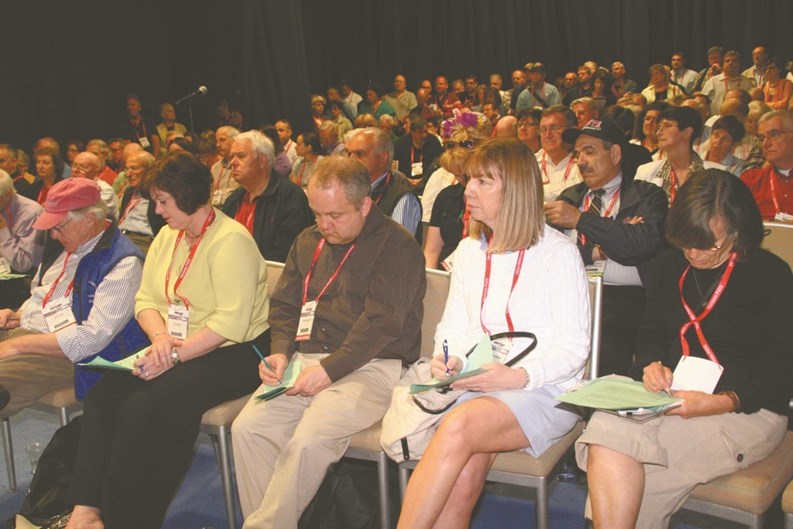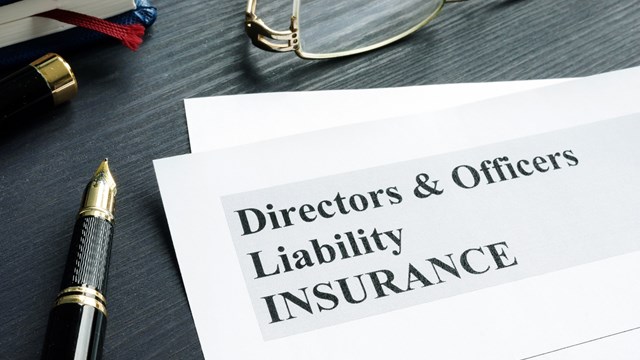To be an informed board member is the goal. For both new and seasoned members, however, there are countless challenging topics requiring specific knowledge. With new regulations and legislation on tap, it is imperative that board members understand these niche categories, an approach best supported by continuing education for board members.
Most board members are not experts in real estate or property management, but as Curt Macysyn, CAE, Executive Vice President of New Jersey Chapter of the Community Associations Institute (CAI-NJ) points out, “New board members may have valuable private or public sector experience,” but, “they should take the time to understand basic board protocols like Roberts Rules of Order and the Carver Model of Policy Governance.”
Macysyn explains that it is extremely important that “Whether you are a new board member or a veteran board member,” education is the key to building an effective and efficient board.
“CAI-NJ hosts the 'Essentials of Community Association Volunteer Leadership' each February. This is a full day course, held on a Saturday in February. It is a basic primer course for newer board members. Veteran board members may want to brush up on other skills as they continue to serve, whether that be finance, budgeting, transition or rules enforcement,” says Macysyn.
The learning curve is often the hardest for new board members who have little experience not only tackling policy issues but understanding the legal and financial nuts and bolts of running a community association, “Optimally, the benefits [of education] are a much better understanding of what their responsibilities are,” says Scott Dalley, Senior Vice President at Access Property Management, and is also President of IREM Chapter No. 1.
According to Dalley this education, “should in turn allow them to be the policy making body that they are intended to be and allow their professionals and service providers to carry out their duties and responsibilities more effectively.”
“A board that truly understands their role in the operation of their community, as well as those of the professionals and service providers, has an opportunity to have a truly well-run community that is well-maintained and efficiently delivers the services it is charged with providing,” says Dalley.
Dalley points out that, “Board members, among other responsibilities, have a fiduciary responsibility and understanding the financial statements is key to fulfilling that responsibility. Probably the most important piece of information that a board member receives each month are the financial statements, at a bare minimum the board member should be able to understand the balance sheet and income and expense statements. Income and Expense statements typically offer both period and year to date figures that include comparison to the budget (variances).”
One highly valued resource that many board members utilize are classes and seminars hosted by the CAI-NJ. Two classes that are recommended are the M-100 class and the M-206.
The M-100 class explains the basics of financial statements, providing board members a valuable education regarding the fundamentals of financial statements. The M-206 class delves far deeper into the subject of the financial statements.
Continuing education should not be limited to learning the intricacies of financial statements. Macysyn tells us that, “CAI-NJ hosts several courses throughout the year that cover a wide variety of topics that would be helpful to our community association volunteer leaders.”
He says, “Outside of just keeping pace with the latest trends and mandates, our programs allow attendees to learn 'tricks of the trade' from industry professionals, as well as getting a feel for the services that a particular industry professional can offer. Having a comfort level with contractors and professionals can make projects run more smoothly.”
Board members can go to CAI-NJ's website at www.cainj.org to see the latest offerings. Additionally board members should check out CAI National's website at www.caionline.org which is home to a large bookstore that provides GAP (Guide for Association Practitioners) Reports, manuals, books on matters like rules enforcement and construction defect, as well as article collections from CAI National’s monthly magazine Common Ground, which also publishes a comprehensive calendar of events.
These books, he notes, explains all the things a rookie board member needs to know including: how to be a good board member, fiduciary responsibilities, previous years financial reports, minutes from meetings, management reports, pending projects and pay action lists. “They have this information at their finger tips to educate themselves as to what is going on,” he says.
Most industry professional agree that all board members should be familiar with the underlying documents to their respective building. These include reading bylaws, house rules, the certificate of incorporation and proprietary leases. Many experienced property managers urge that new board members should team with more experienced board members. A mentoring process is recommended. “Many new board members are nervous about asking questions,” says Macysyn. “A mentoring process provides a one-on-one education making it far more comfortable for a new board member to ask questions as opposed to being in a room with five to twelve people,” he adds.
Back to School
Mark Twain wrote “I have never let my schooling interfere with my education.” For many board members this also rings true because so much is learned through the experiences of sitting on a board aggregating and analyzing information and ultimately rendering a decision on an issue that impacts the organization. However, it is equally important to keep your pencil sharpened and be willing to hit the books.
“An organization like Community Association Institute (CAI) was formed to educated community volunteers,” says Frank Socci Jr. CPM (Certified Property Manager), Principal, Director of Property Management for NAI Global in Princeton. While he notes that many courses and seminars are free because they are sponsored by vendors and management companies; it isn’t always easy convincing board members to attend.
It’s very difficult sometimes. Many board members are very busy, but if information regarding seminars and vendor events are shared with colleagues it can encourage them to attend,” Socci continues. “Many of these events are given in informal or social networking formats that make them very inviting.”
Not all courses are free, but Macysyn says that CAI-NJ, “tries to keep the costs associated with these courses low, so we encourage participation. For a half day, stand alone program, the cost would be about $75.00. In my opinion, the greatest value of our entire menu of offering is the $25.00 registration fee for homeowners attending our annual conference & expo at the New Jersey Convention Center in Edison, NJ. We have five separate course offerings that day, plus breakfast and lunch. In most cases, the community does pay for its members’ continuing education, it depends upon the community, but most do.”
Additionally CAI and the National Board of Certification for Community Association Managers, offer dinner networking/seminars, social networking, trade shows and other events. Macysyn says, “It is absolutely not necessary to enroll the entire board. One or two representatives can take classes and report back to the board.”
To his point, industry analysts agree that it is often best to split up board members for different areas of expertise. For example, three board members may be assigned to attend one conference, share notes and return to the board with collective findings and serve as board leads on related issues.
Role of the Manager
Most managers will say it is a necessity to encourage board members to educate themselves, “From the manager’s prospective, it’s a matter of professional responsibility,” says Dalley.
“Managers are paid professionals and need to know and understand the particulars of their chosen profession. Continuing education for a property manager should be as much a part of their lives as breathing. It’s essential; no encouragement required.”
“For volunteer board members, it’s a little different,” says Dalley.”
“Taking courses requires a commitment of time and energy in addition to their board responsibilities. That having been said, a truly well educated board member is a much more effective advocate for his/her community. So the community should definitely have a line item in its operating budget for board member education. Typically board members are volunteers and shouldn’t have to pay for the training out of pocket.”
Additionally, and often under-utilized resources are those professionals that are retained by the board to provide advice.
“The association’s auditor, counsel, engineer and insurance professional are all good sources of information on certain subjects,” says Dalley.
Maria Avery, vice president of NJ IREM Chapter No. 101 in Riverton, stresses that by finding unique ways to continue their education board members can find, “new ways of handling things.”
“I find that I learn more when I go into a classroom with other people, you learn from other people. That's the key element. You don't really learn from the instructor, but you learn from the classroom environment where you have different brains inside the same room and everybody thinks different and they have different ways of approaching things and solving problems. So that's the big benefit that I don't think anybody can replace.”
Whether it is in a classroom, at a convention center, dining with other board members, surfing the web, or just sitting around the clubhouse talking with fellow board members, everywhere a board member looks a new opportunity can be found to continue their education. And one thing is certain a well-informed board member will help build an efficient and competent board; which in the long run will help to maintain a successful and harmonious community.
W.B. King is a freelance writer and regular contributor to The New Jersey Cooperator. Additional reporting by David Chiu.







Leave a Comment